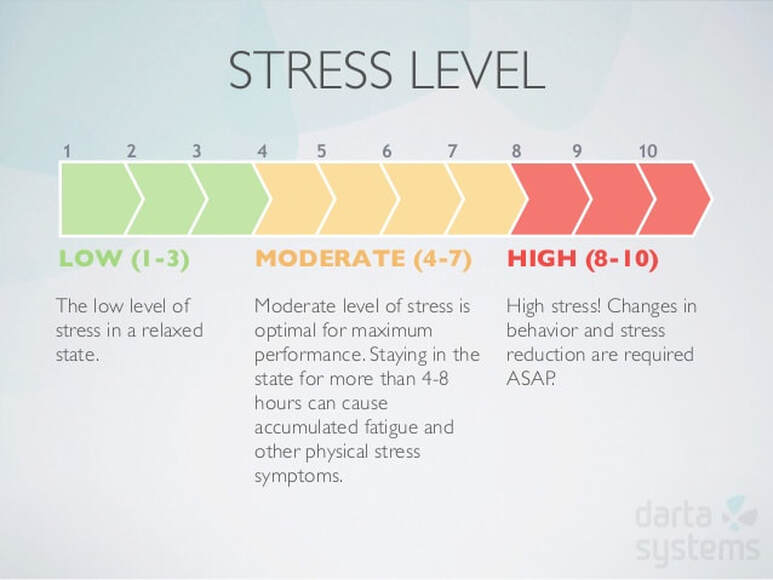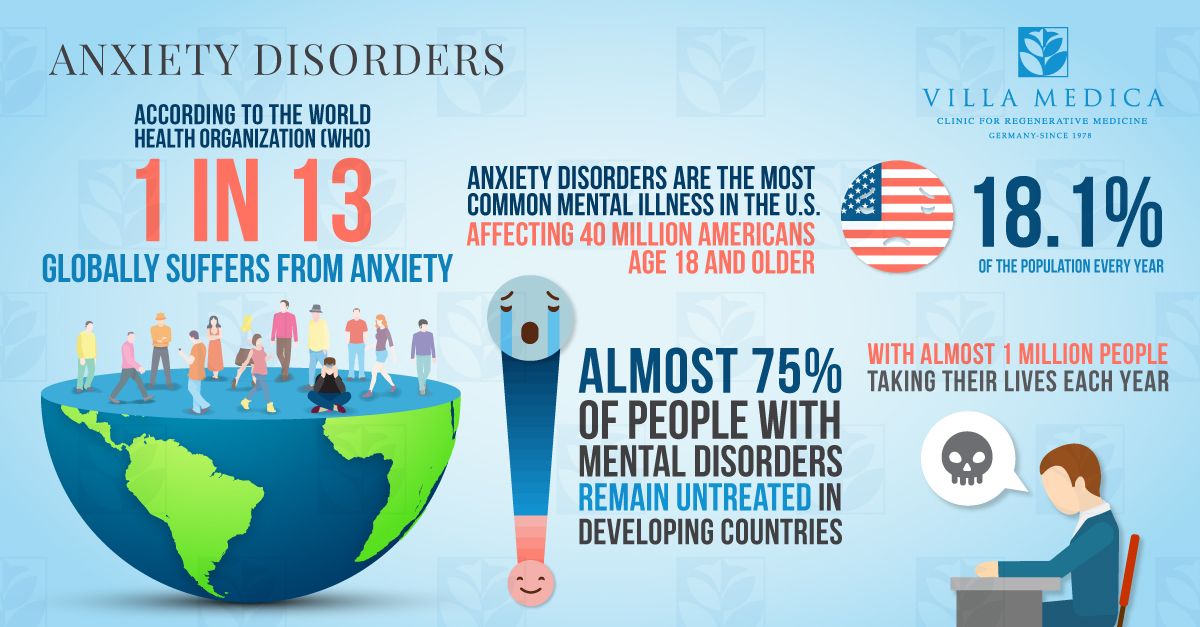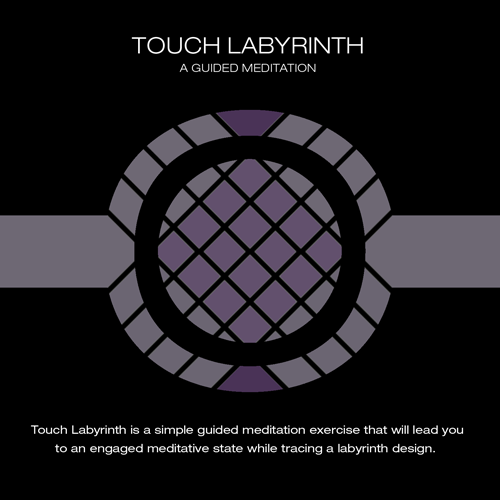 Takeaways: • Self-assessment techniques can be as effective as clinical measures for stress • Regular stress awareness can lead to better physical and mental health • Developing stress coping skills is crucial for managing stress effectively Most online stress measurement tools use a "life-event" method to determine your stress levels. They consider major events like divorce, job loss, or illness as indicators of high stress. However, this approach doesn't account for daily activities and how we react to them. Smaller but significant stressors, like a difficult boss or challenging relationships, can build up over time. A better way to assess stress is similar to how we measure exercise intensity. The Rating of Perceived Exertion (RPE) scale lets you estimate how hard you're working out without special equipment. You rate your effort from 6 (no exertion) to 20 (very intense). This method is often as accurate as using heart rate monitors. Dr. Sheldon Cohen of Carnegie Mellon University developed a similar technique for stress called the Perceived Stress Scale (PSS). It asks you to estimate your stress based on uncertainty, lack of control, and overload in various areas of your life. You can find online tests based on this method to self-assess your stress levels. I prefer a printed version of this test. It takes just a few minutes to complete the list. https://www.das.nh.gov/wellness/Docs%5CPercieved%20Stress%20Scale.pdf (If this link does not work – use keyword Cohen PSS in your favorite search engine) I like the online tool for Cohen PSS - by Kresser Institute because it does not require you to provide an email address. You can share your email if you want a copy of the test. I just use the copy and paste option. kresserinstitute.com/tools/pss/ The importance of stress awareness cannot be overstated. Research has shown that individuals with higher perceived stress, as measured by the PSS, often face more significant health challenges. For example, higher PSS scores have been associated with:
These findings highlight why monitoring your stress levels is crucial for maintaining good health. By recognizing our stress levels, we can take steps to reduce them and potentially avoid these negative health outcomes. To effectively manage stress, it's important to develop coping skills. There are two broad ways to deal with stress - directly and indirectly. Direct stress-coping skills address the underlying cause of stress, such as time management, organization, assertiveness, and asking for help. Indirect stress-coping skills help you feel better despite your stress, like regular exercise, spending time in nature, engaging in social activities, and taking time to relax every day. Building these stress management skills takes effort and time. A lot of stress management has to do with fundamental life habits - sleep, diet, and exercise, as well as engaging in your community and taking time to do the things you enjoy. Action Steps:
By focusing on stress awareness and developing effective coping strategies, we can take control of our mental and physical health. Remember, understanding your stress is the first step towards managing it effectively. We'd love to hear about your own methods for assessing and managing stress levels! If you're interested in one-on-one coaching (remote or face-to-face) on using your smartwatch to monitor stress levels or developing personalized stress management strategies, please reach out using the registration form on our workshop page. Your experiences and insights can help you and others on their journey to better stress management and overall well-being. Please remember these tests and screenings are not a substitute for a clinical evaluation. Contact a health professional for more information and a complete exam.
0 Comments
Anxiety is an emotion we all feel from time to time--sometimes for good reasons, and sometimes not so much. Anxiety is one of the strongest emotions we feel, and it can provide us with motivation, power, push, and drive.
Human brain has evolved uniquely for us to look at the future and review the past. Mother Nature also has provided us with a negative bias. Clearly, these adaptions have helped us survive as a species. Anxiety often comes when our brain creates images of our future that can be scary (remember our inherent negative bias). At its worst, anxiety can be incredibly frustrating and challenging, we can experience debilitating fear, worry and nervousness. At its best, however, anxiety is an emotion that can fuel us to great success--and ultimately, even happiness--so long as we control the anxiety we feel, and don't let it control us. Anxiety often can help us pay attention to detail and provide us energy to push through roadblocks. I always remind myself that anxiety and excitement have the same physical “symptoms”, the only difference is the thoughts we have. Change your thoughts and you can change anxiety to excitement! Want to learn how to turn your anxiety into success? Here are 3 steps to do just that. Step One - Pause Naturally, the most straightforward thing to do is simply to observe your anxiety. For most of us, anxiety manifests in form of rapid heart rates, breathing and sweating. One of my students, a busy executive, sits down and writes a blessing “May I be happy and peaceful” and puts his palms over his belly and just observes his breath. This pause often interrupts our negative bias. Step 2 - Reflect A nurse friend of mine grabs a pad of paper and writes what is worrying her. The act of writing slows down her thinking and she is able to look at her fears with a more balanced perspective. Write the worst thing that can happen and then look at other possible outcomes. Sometimes, it helps to talk with trusted colleague, friend or family member. Step 3 - Act Physical activity is an important step for most of us. In many cases, I will walk out of my office and go for a walk around the block. If the weather is not favorable, I will walk up and down the staircase. Another friend likes to use the coloring book for 5-10 minutes. Dancing to your favorite relaxing music can be powerful. Many of my students like to use “Blessing Meditation” Check this link out for more details. https://www.meditation-magic.com/blog/key-to-happiness-cultivate-our-capacity-for-kindness Be patient and kind to yourself. Gently remind yourself “This too shall pass”. The more you take time to practice these three steps Pause, Reflect and Act”, you will be able to train your brain for love, peace and joy. Send me your questions and comments! Some of my students like this three minute video on releasing anxiety https://vimeo.com/showcase/6730459/video/553684152 Disclaimer: One in five Americans suffer from anxiety disorders. It's not uncommon for someone with an anxiety disorder to also suffer from depression or vice versa. Nearly one-half of those diagnosed with depression are also diagnosed with an anxiety disorder. Anxiety disorders are highly treatable, yet one in three of those suffering receive treatment. Check your healthcare provider and local health department for resources. https://adaa.org/about-adaa/press-room/facts-statistics https://villa-medica.com/anxiety-disorders/ |
a guided finger meditationEngage your senses with soothing music, guided imagery and a labyrinth tracing activity which leverages the power of touch. Click the album cover to learn more. Categories
All
|


 RSS Feed
RSS Feed